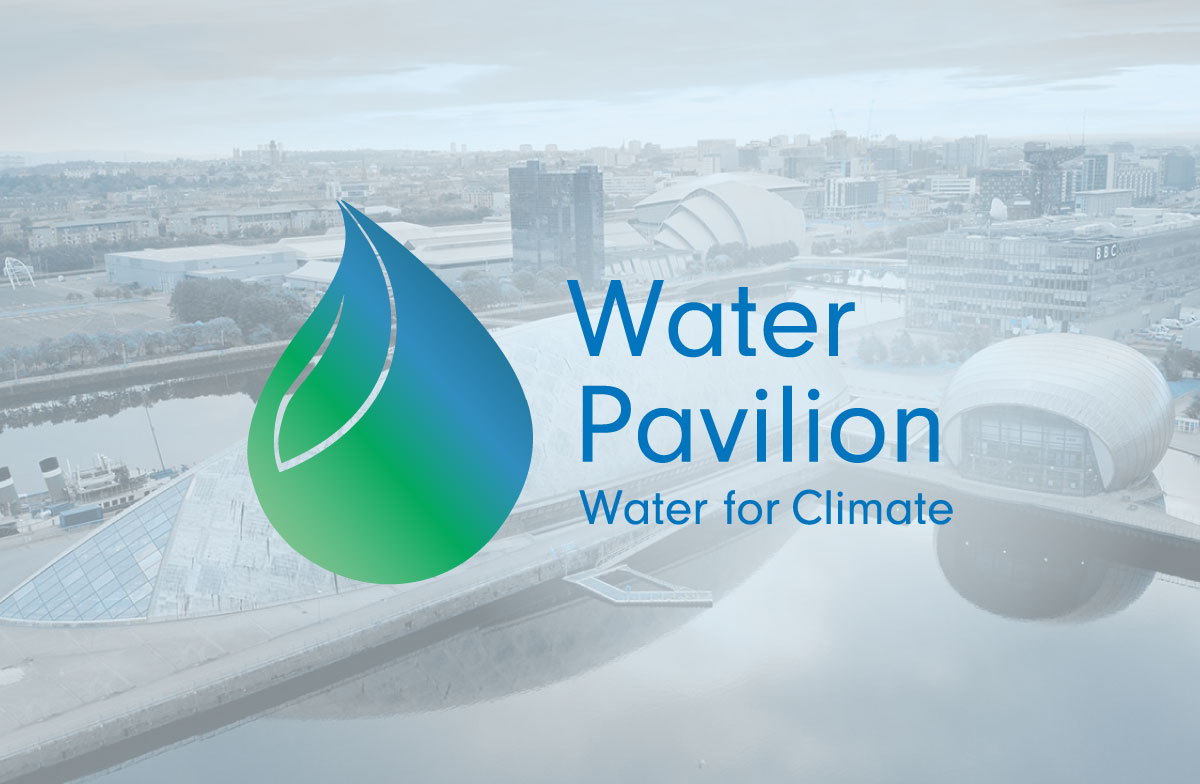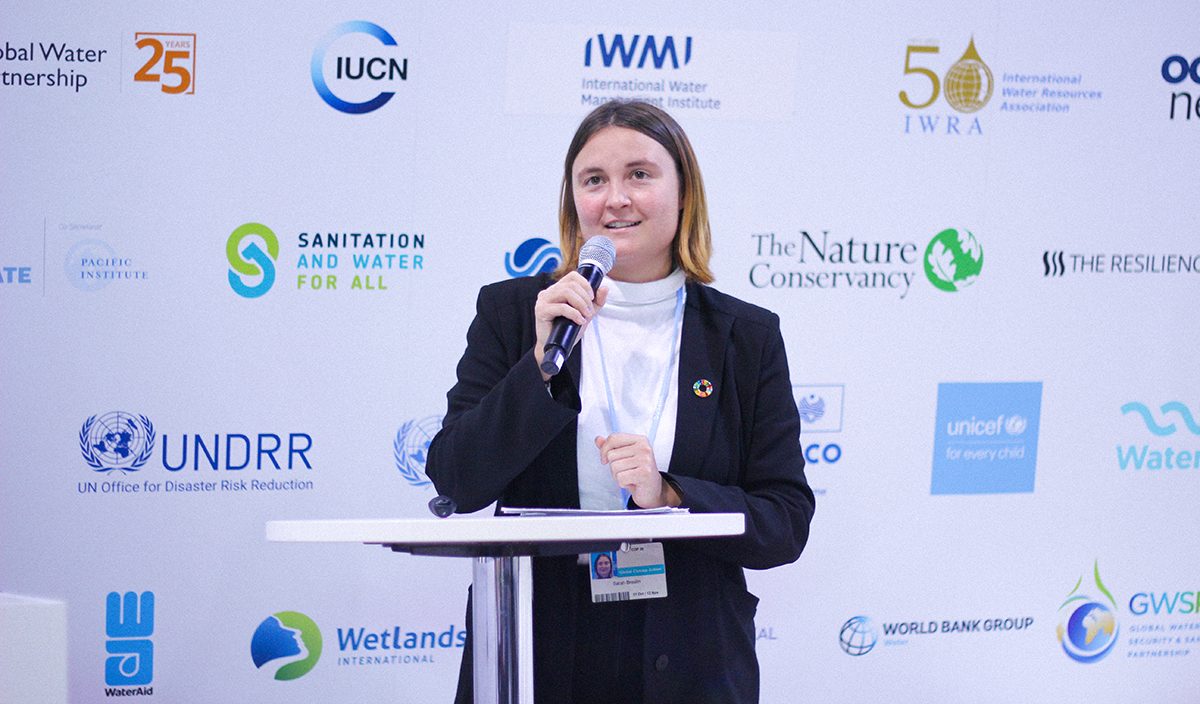Why climate change is sexist and what to do about it
Climate change is not gender neutral; it is sexist. This was the message when SIWI’s focal point for gender, Sarah Breslin, spoke in a session during the climate meeting COP26 in Glasgow. She also outlined what more equal policies could look like.
Sarah Breslin, outgoing focal point for gender at SIWI, spoke in the session Reinforcing climate resilience through integrated climate solutions on Wednesday 10 November as part the SIWI-led Water Pavilion’s day on Disaster Risk Reduction:
“Even though climate change adaptation measures are based on hard science, they are not neutral. Because the effects of climate change are not neutral. As was said in the COP26 Presidency event yesterday – climate change is not gender neutral, climate change is sexist,” Breslin said.
She mentioned conservation of nature as one example of how adaptation measures can impact men and women differently. Restoring wetlands is important for carbon storage and as a protection against flooding, “But what if that specific land was the safest route for women in the area to get to fetch water or relieve themselves? Does this mean that they will have to take a longer route, or even worse, an unsafe route, putting them at higher risk of violence?”
To prevent this, Sarah Breslin emphasized the need for decision-makers to speak with all affected stakeholders. Involving women in decision-making is also the key to achieve important transformations, including adapting our agricultural systems where female small-scale farmers play a crucial role. In South Asia, 60 per cent of the women work in agriculture but compared with male farmers they have fewer legal titles to the land they farm and less access to information. “If we want to make these food systems climate resilient, we need to consider the needs, knowledge and capacities of these women,” Breslin emphasized.
“Even though climate change adaptation measures are based on hard science, they are not neutral. Because the effects of climate change are not neutral.”
Here are key take-aways from her presentation:
- Consult communities and women’s groups before implementing adaptation measures to avoid unintended negative social effects.
- Make sure that information around adaptation, such as climate-resilient crops, reaches women. Access to information is often a barrier, considering the high illiteracy levels among women.
- Ensure that women are involved in decision-making and consider the social and legal barriers that are keeping them out.
- Resilience cannot be achieved without women.
Watch the full Water Pavilion Disaster Risk Reduction day
You need to accept cookies in order to see the video below. Or watch it on YouTube.
Water and Climate Pavilion at COP26
SIWI is leading a historic effort to mobilize the water community and partners in the global climate action community to debut the first-ever Water & Climate Pavilion at the COP26 UK in Glasgow.
Explore the Water Pavilion








